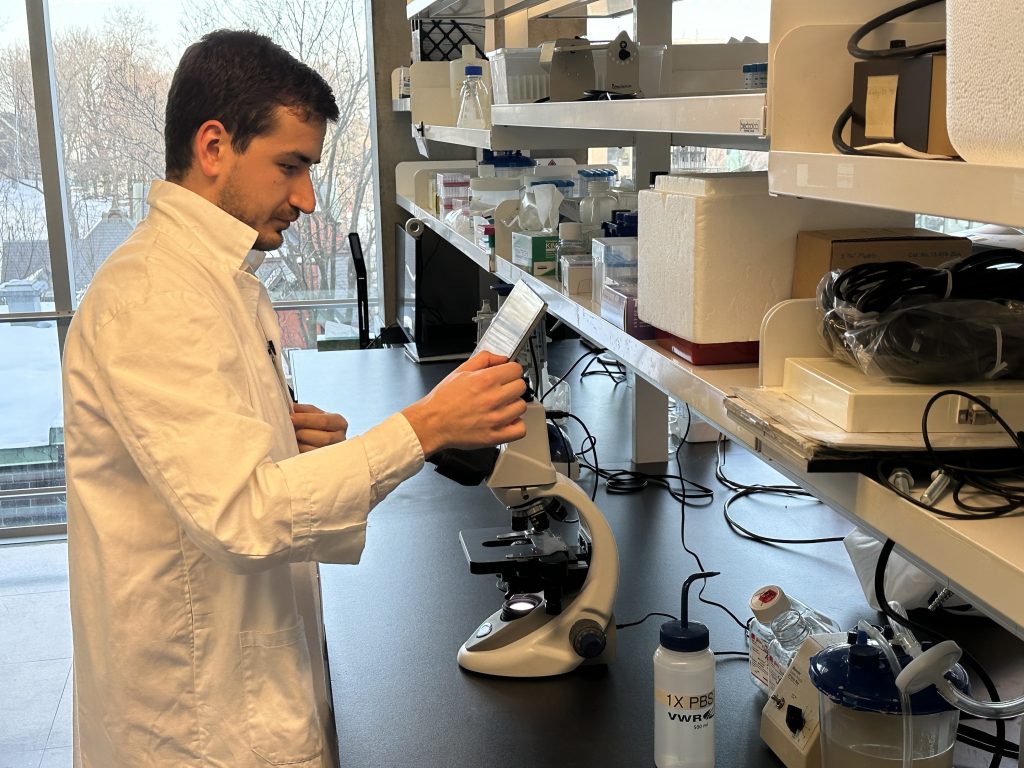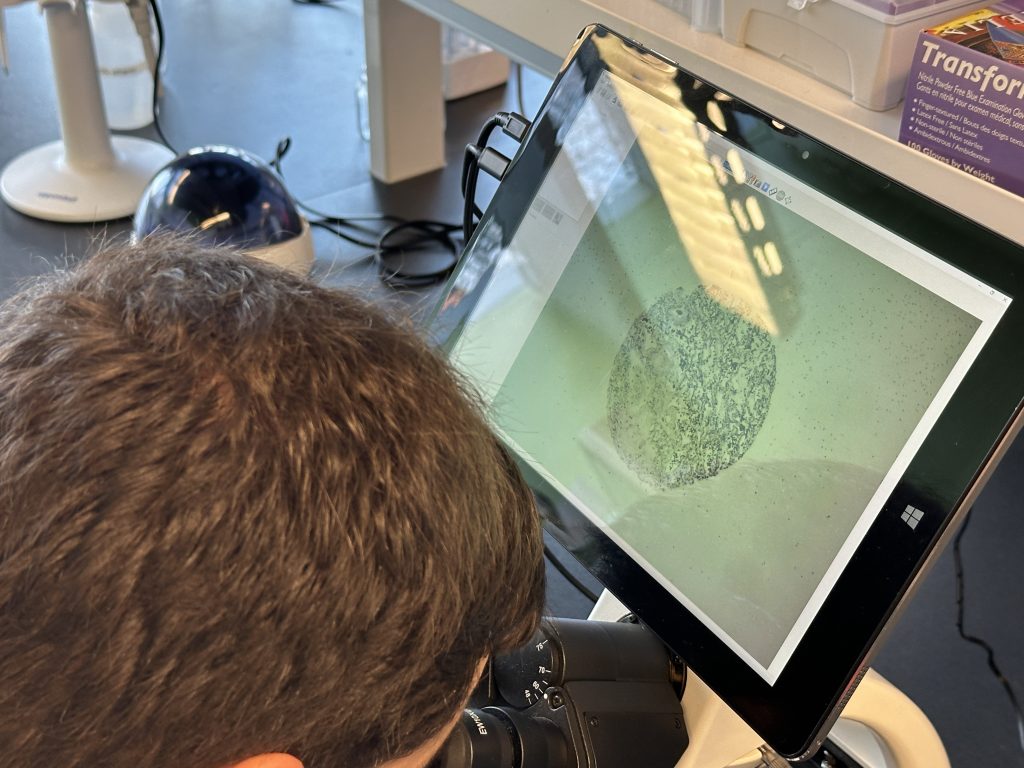Quebec study on lung cancer recurrence nominated as top discovery of the year
Posted February 20, 2024 7:31 pm.
Last Updated February 21, 2024 1:13 pm.
New findings from McGill University in partnership with l’Université Laval could revolutionize the treatment of lung cancer.
The disease has long been Canada’s leading cause of cancer-related death, but a study suggests artificial intelligence can now predict a patient’s risk of lung cancer recurrence with 95.9 per cent accuracy.
“This technology could be applied to other cancers. We’re also interested in predicting either recurrence or response to therapy,” said Mark Sorin, MD-PhD Candidate at McGill University Rosalind & Morris Goodman Cancer Institute.
“If we were able to know which patients would have a recurrence, we would be able to offer these patients a treatment like chemotherapy in order to cure them. And the patients that are simply cured by surgery and will not have a recurrence, we could spare them the toxicities of chemotherapy.”

The research team combined A.I. with a new technology known as imaging mass cytometry.
“It basically profiles both the identity and location of cells in the tumor microenvironment,” explained Sorin. “What this technology allows us to do is to profile these different cell types with up to 50 different markers.”
Each marker is used as a tool to help differentiate cancer cells from cells that are immune. Mark says this research goes far beyond what is available in clinical practice now.

“What they have in hospitals is called immunofluorescence, which is a similar technology, the only difference being that instead of being able to use up to 50 different markers, usually in clinic they can only use up to three markers,” said Sorin.
“With the use of six markers, we were able to have a prediction accuracy of 93% in terms of which patients would or would not have a recurrence after surgery.”
According to statistics, lung cancer kills more Canadians than breast, colorectal, and prostate cancer combined.
“This was a huge collaborative effort. And our end goal is always to benefit patients, so we’re going to keep working in order to do that.”



